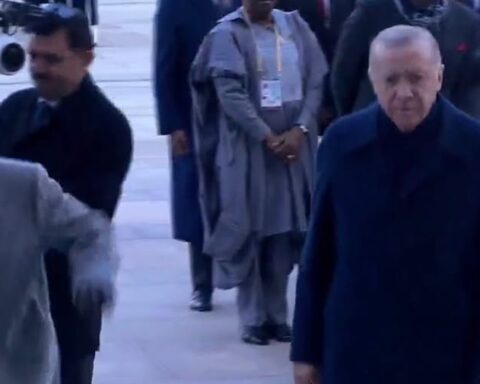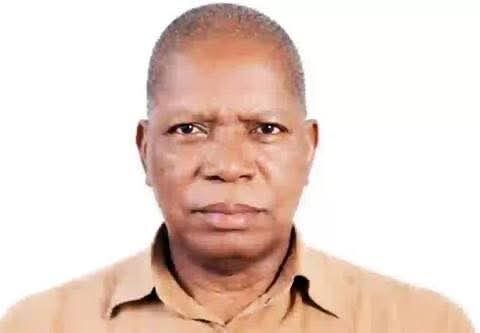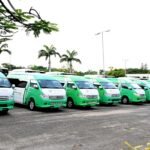WHERE debates arise over ownership of property, our forebears drew from their perspicacity to reach decisions that may not be conclusive. There is wisdom, therefore, in the ancients saying, “someone is the owner of what belongs to us”. If we apply this saying to the Nigerian National Petroleum Company Limited, NNPCL, the subtleties of our forefathers become more obvious. Is it our NNPCL, their NNPCL, or whose NNPCL?
These questions are about what NNPCL does and how it operates. Only days ago NNPCL confirmed the duplicity in its engagements with the public.
Let us assume that NNPCL is Nigeria’s national oil company. The assumption would further be that it is accountable to Nigerians. It does that through audited accounts that from which we glean that in 2023 it made a profit of N3.397 trillion. We can hold the applause. Less than a week after the financial statement, NNPCL was reportedly owning international petroleum products dealers $6.8 billion.
Those to account for NNPCL are President Bola Ahmed Tinubu, who is the Minister of Petroleum Resources. Who will the Minister accout to? He is Executive President, though our Constitution provides for a President. He has immunity, and something weightier than Immunity, the National Assembly whose leadership excels in approving anything the President wants with dispatch.
Senator Heineken Lokpobiri, Minister of State for Petroleum and Mr. Ekperikpe Ekpo, Minister of State for Gas are just proxies. They cannot decide a thing on the industry without clearing with the Minister, President Buhari.
Did NNPCL increase price of petrol on its own? Could it? It is most unlikely that the decision could go without President Tinubu’s approval.
When the Federal Government denied knowledge of the increase in the price of fuel and the Ministry of Petroleum Resources repeated the same trite line, NNPCL was expected to have an explanation. It did.
Market forces, fluctuating exchange rates, smuggling, and high consumption of the product, NNPCL said, were responsible. NNPCL did not forget to warn us that the increase from N617 per litre to N897 per did not reflect the full market price of petrol.
Mr. Adedapo Segun NNPCL’s Executive Vice President, Downstream, told us on television. We should expect more increases, he hinted, until Nigerians pay the “market price” decided by external factors over which we have no control.
NNPCL no announces dates for its refineries that have been under repairs for decades fo commence production. Is the failure to refine crude locally again determined by “market forces”? Will refining crude locally do further damage to the national economy or have “market forces” forbidden NNPCL from refining crude?
Last September, NNPCL on its website, name its new Executive Vice-President, Mr. Segun thus, “Dapo is passionate about developing true leaders who are not bashful in addressing internal and external obstacles to organisational growth”. How will Nigerians benefit from the dismantling of “internal and external obstacles to organisational growth” of NNPCL?
If NNPCL belongs to Nigerians, will its growth be determined by pricing its products beyond the reach of Nigerians to please “market forces”? Why the constant reference to currency fluctuations as if local production of petroluem products cannot make savings that can stabilise the Naira?
The ease with which comparisons are made about the price of petrol in Nigeria and other countries fails to interrogate the differences in the economic circumstances of Nigeria and other countries. Without befuddling the issues, incompetence, corruption, and un-national aggregation of interests that have privatised our mineral assets (so much attention on oil) and see to it that confusing arguments continue on the pricing of petrol, are our obstacles.
Uneconomic forces amassed against Nigerians are more obvious. Sometimes our supposed servants in government mock us with their explanations, if they ever give any. Questions have been asked for ages. Why have governments not answered them beyond comparing us to other countries and consigning us to a sealed fate with “market forces”?
a. How much is minimum wage in other countries?
b. Do they have alternative means of mass transportation?
c. Buses? Trains? Taxis? Tramps? Speed trains? Ferries?
d. Do individuals generate their own electricity?
e. In which of those countries are individuals’ generators the main source of electricity?
f. Do individual provide their own water, usually from borehole that rely on fuel-powered generators?
g. Is education free at any levels in those countries?
h. Are individual providing their own security?
i. Are they without social welfare services?
j. How much do their nationals pay as ransom?
k. What is their interest rate?
l. Do they have refineries that are perpetually under repairs?
m. Are billions of dollars spent maintaining their refineries without results?
n. How many of these countries power their economies with imported fuel?
o. How many of their nationals are killed annually?
p. Do their governments do nothing about such killings?
q. Does their national oil company make a profit when it is owing $6.8 billion?
r. Do their governments throw open the borders for petrol they imported with borrowed money to be taken over by smugglers?
s. Do their governments guess or know the quantity of fuel the country uses?
t. Do they have inefficiencies, delays at their ports that result in demurrages that add to the “landing cost” of petrol?
u. Would their national oil company spend N127.326 billion as annual salary for staff of three refineries that produced nothing in 2021 and nobody was sanctioned?
v. Can their national oil company’s expenses rise within one year thus: entertainment N11 billion from N1.8 billion, legal and professional fees N46 billion from N24 billion?
w. Or spend N15 billion on postage and telephone from N5 billion without any concerns?
x. Do other countries shut down their refineries, and spend billions in subsidising imported petroleum products?
y. Which countries produce the millions of barrels of crude oil Nigeria produces and are still committed to importing petroleum products?
z. How many countries run businesses, whether big or small, on generators?
No explanations suffice for the high prices Nigerians are paying for petrol. In the same way, statistics cannot accommodate these “Nigerian issues” often implicated as economic or market forces.
The foremost challenges before NNPCL and the government are to get the refineries working, curb the stealing of oil and gas assets, invest on more energy sources with the goals of halting rising prices, reducing cost of production, creating more jobs, and making food, improved health services accessible to Nigerians at affordable prices.
Increases in prices of petrol trigger off increases in prices of everyone, even the cost of dying.
A plan that will shred petrol and energy costs to reasonable levels, is a major plank for the investments the Minister of Petroleum Resources is pulling in from China to succeed.
Finally…
FEDERAL Inland Revenue Service, FIRS, wants to increase VAT on goods that are already too expensive. The insensitivity of the move may be a moral question but is there economic sense in taxing goods to the point that people cannot buy them?
PETROL is not available at N897 per litre. Black market rates start at N1,500 per litre in Abuja and Aba. We are only in the first week of the increase.
TRANSPORT fares for even the shortest distances can consume over 50 per cent of the newly approved national minimum wage. Workers just got transport allowance if the petrol prices are not reversed. Just imagine the impact on transportation of foods and other goods.
ISIGUZO is a major commentator on minor issues



























